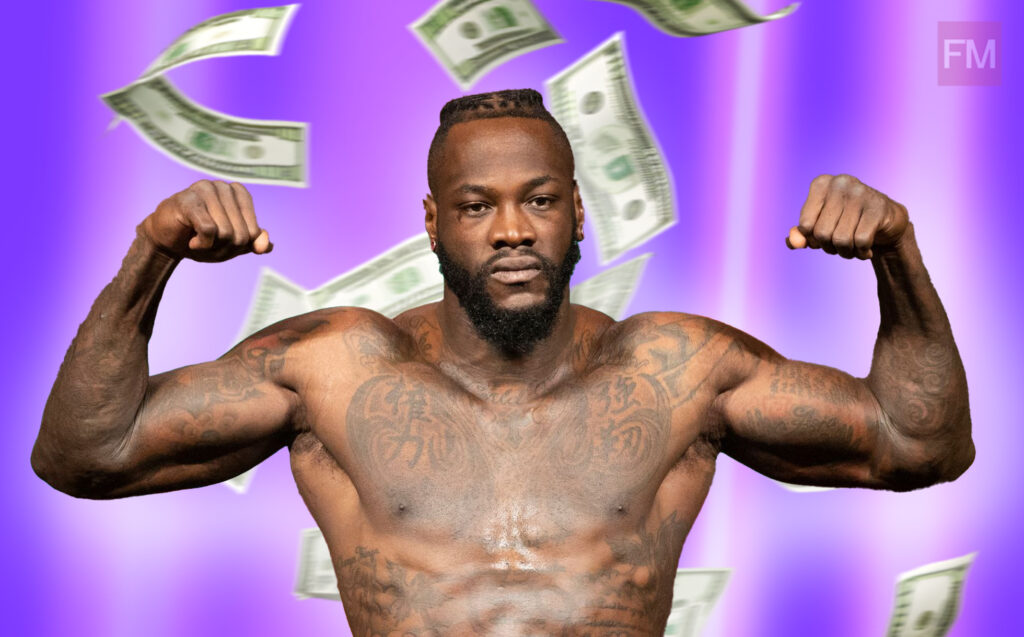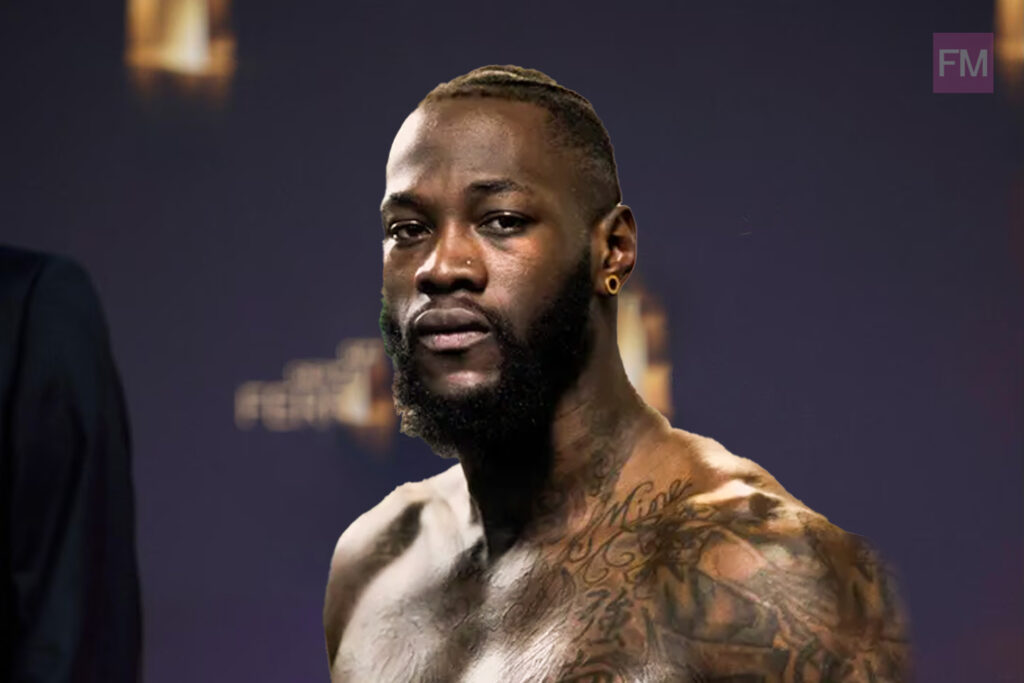Deontay Wilder, famously known as “The Bronze Bomber,” was born on October 22, 1985, in Tuscaloosa, Alabama. His early life was marked by challenges and determination, shaping him into the iconic boxer he is today. Wilder initially dreamed of becoming a football or basketball player but shifted his focus to boxing at the age of 20. This change was driven by his need to provide for his daughter, who was born with spina bifida.
Although he started boxing relatively late compared to most professional fighters, Wilder’s raw talent and fierce determination helped him rise rapidly in the sport. In 2008, he represented the United States at the Beijing Olympics, where he earned a bronze medal. This achievement not only highlighted his natural abilities but also earned him the nickname “The Bronze Bomber,” a nod to his medal and homage to his boxing idol, Joe Louis, who was known as “The Brown Bomber.”
Table of Contents
Quick Information Table: Deontay Wilder Net Worth
| Aspect | Details |
|---|---|
| Full Name | Deontay Leshun Wilder |
| Nickname | The Bronze Bomber |
| Net Worth (2025) | $30–$40 Million |
| Primary Income Source | Professional Boxing |
| Major Endorsements | Everlast, Raising Cane’s |
| Biggest Fight Earnings | ~$28 Million (vs. Tyson Fury, 2020) |
| Philanthropy Focus | Children with Disabilities, Community Aid |
| Residency | Tuscaloosa, Alabama |
Professional Boxing Career and Earnings
Deontay Wilder’s professional boxing career is marked by monumental success and impressive earnings. He began his professional journey in 2008, and in just a few years, he claimed the WBC heavyweight title in 2015 by defeating Bermane Stiverne. Holding the title for over five years, Wilder achieved significant financial success through high-profile fights and pay-per-view events. His trilogy with Tyson Fury stands out as one of the most lucrative rivalries in boxing history, with their rematch in 2020 reportedly earning Wilder around $28 million. Beyond his fights, his career earnings also include bonuses, sponsorship deals, and a cut from ticket sales and broadcasting rights. Wilder’s dominance in the heavyweight division, combined with his knockout power and charisma, has made him one of the highest-earning boxers of his era.

Income Sources Beyond the Ring
While boxing remains the primary source of Deontay Wilder’s wealth, he has diversified his income through endorsements, sponsorships, and investments. Wilder has collaborated with brands like Everlast, Raising Cane’s, and Premier Boxing Champions, adding millions to his earnings. Additionally, he has ventured into business, including investments in real estate, which provide him with stable income streams outside the volatile nature of sports. His ability to leverage his fame and marketability has allowed him to maintain a strong financial portfolio, ensuring long-term wealth even after his boxing career.
Lifestyle and Expenditures
Wilder’s lifestyle reflects the success he has achieved in the ring. He owns luxurious properties, including his primary residence in Tuscaloosa, Alabama. His love for high-end vehicles is evident from his collection, which includes exotic cars and custom-built motorcycles. Beyond his material possessions, Wilder is known to spend on experiences, including family vacations and events that celebrate his heritage and achievements. Despite his extravagant purchases, Wilder has expressed his focus on financial responsibility, emphasizing the importance of securing his family’s future.

Philanthropy and Community Engagement
Deontay Wilder has consistently used his platform to give back to the community. He actively supports charitable initiatives, particularly those focused on helping children with disabilities, inspired by his daughter’s journey with spina bifida. Additionally, he has contributed to various causes in his hometown of Tuscaloosa, including supporting local businesses and youth programs. Wilder’s efforts extend beyond monetary donations; he participates in speaking engagements and uses his influence to inspire others, highlighting the importance of perseverance and compassion.
Comparisons and Financial Standing Among Peers
Deontay Wilder’s net worth, estimated to be around $30-$40 million, places him among the top earners in boxing. Compared to peers like Tyson Fury and Anthony Joshua, who have net worths of $65 million and $80 million respectively, Wilder’s earnings are slightly lower. However, his knockout record and marketability ensure his position as a major draw in the sport. Factors such as the outcomes of his fights and his endorsement deals have influenced his financial standing, and his continued involvement in high-profile events ensures he remains a key figure in boxing.

Conclusion
Deontay Wilder’s net worth is a reflection of his remarkable journey from humble beginnings to global stardom. His success in the ring, combined with smart investments and endorsements, has solidified his financial stability. Beyond wealth, Wilder’s impact is felt through his philanthropic efforts and his ability to inspire millions worldwide. As he continues to build his legacy, his story serves as a powerful example of resilience and determination.
READ MORE : ProcurementNation.com: Everything You Need to Know
FAQs
Q: What is Deontay Wilder’s net worth?
A: Deontay Wilder’s net worth is estimated to be between $30-$40 million.
Q: What are Deontay Wilder’s main sources of income?
A: Wilder earns primarily from boxing, endorsements, and investments.
Q: How much did Deontay Wilder earn from his fight with Tyson Fury?
A: He earned approximately $28 million from their rematch in 2020.
Q: Does Deontay Wilder support charitable causes?
A: Yes, Wilder is actively involved in philanthropy, supporting children with disabilities and his local community.
Q: How does Deontay Wilder compare financially to other boxers?
A: While his net worth is slightly lower than Tyson Fury and Anthony Joshua, he remains one of the highest-earning boxers in the sport.


